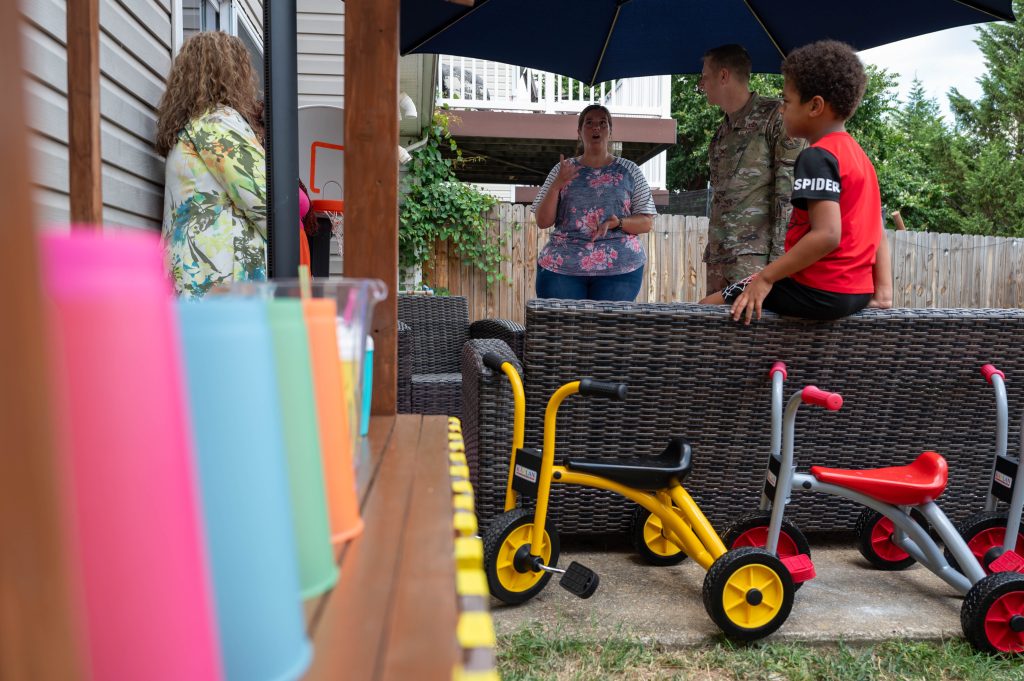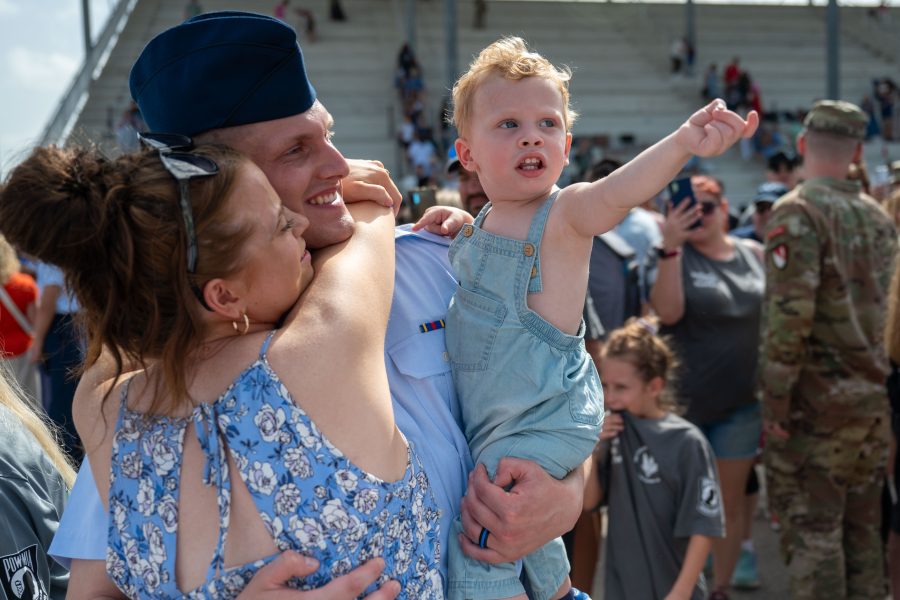The Air Force’s sweeping effort to re-optimize for Great Power Competition needs to extend to families, Chief of Staff Gen. David W. Allvin wrote in a memo last week, urging Airmen, their loved ones, and community leaders to prepare for a potential conflict or contingency.
When Air Force Secretary Frank Kendall first announced the review in September 2023 that would culminate in two dozen decisions announced earlier this year, readiness for competition with the likes of China and Russia was a frequent theme.
That push, Allvin wrote in an Aug. 16 letter addressed to Airmen, families, and community partners, would be “incomplete without a parallel focus on family readiness.”
The costs of not being prepared, he added, are clear.
“As a squadron commander during the terrorist attacks on Sept. 11, 2001, I was struck by how collectively unprepared we were for the changing environment from a family readiness perspective,” Allvin wrote in the Aug. 16 memo. “We cannot afford to be in that situation again.”
From that experience, Allvin added, he formulated three “insights”:
- The need for family members to understand the mission of their service member and the broader Air Force.
- Strong connections within the community and support programs before a crisis.
- Preparing families to take action as needed when their service member is executing their duties.
Allvin touted several moves the Air Force has already made to build family readiness.
One major change was to the Key Spouse Program announced this spring. Now called the Commander’s Key Support Program, the effort identifies volunteers who welcome new families, connect families to support programs, provide deployment assistance, and more. Previously, the program was only open to military spouses, but the Air Force has now opened up positions to anyone. The program is also implementing new training, tools, templates, and objectives.
“Our goal is to create a culture where support programs are ready to surge when needed,” Gina Allvin, wife of the Chief of Staff, said at the time. “When service members and their families understand the resources available to them, it makes navigating challenging times easier for the entire base community.”

The service “reshaped” its Relocation Assistance Program to prepare service members and their families for permanent changes of station, Allvin said. It also implemented a “Connect to Care” approach for victims of interpersonal violence, a move former Undersecretary of the Air Force Gina Ortiz Jones often referred to as a “no wrong door” policy—different support agencies are supposed to connect victims with the proper program with a “warm handoff” rather than simply redirecting them.
Still more changes are coming, Allvin added. The Air Force currently has two programs, True North and Operational Support Teams, that are meant to embed teams of spiritual, emotional, behavioral, and physical health professionals within units. Those programs will be combined, “centralizing unit resources and enabling allocation and re-allocation based on unit risk data and evolving mission priorities,” Allvin wrote.
Beyond those efforts, Allvin also called for service members, their families, and communities to work on family readiness together.
Air & Space Forces Association president and CEO retired Lt. Gen. Burt Field said he supported Allvin’s efforts and focus on family readiness.
“Without ready families, you won’t have ready Airmen and Guardians,” said Field. “We know that family readiness and mission readiness are directly linked. That’s why we are so committed to helping the Department of the Air Force ensure Airmen, Guardians, and their families have the quality of life they deserve and are well-supported at home, whether in peace or wartime.”
